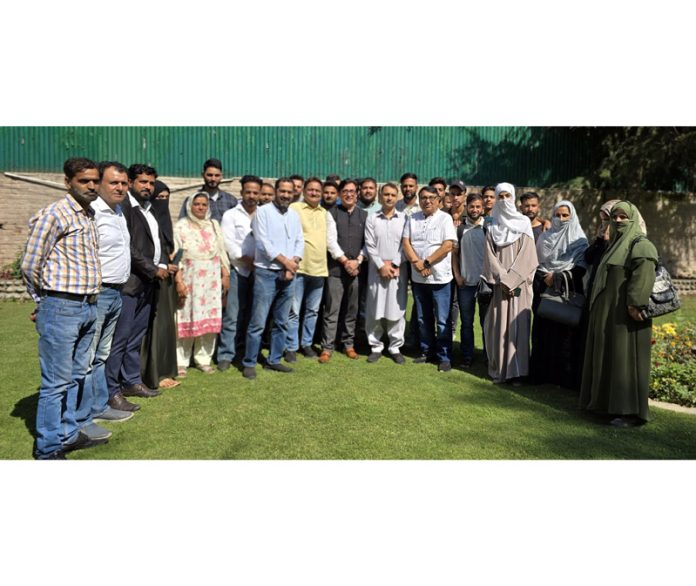MEMOIR My Brother Jaz Gideon Haigh Melbourne University Press, $24.99 Gideon Haigh has always been an incomparable journalist, someone who can write about cricket or business or the polarising Daniel Andrews. I have an ancient memory of the launch of his first book; now we learn that came just after the death of his brother Jaz, who died on August 13, 1987.
Haigh has finally written about what is the defining sorrow of his life. The upshot, in a few thousand words, is a masterpiece, a transfiguring revelation of what his love for Jaz was and a recreation – magnificent in the sweep and detail of its articulation – of the depressive hulk of a human being it left him as, bereft and trying not to feel anything, least of all the remotest hint of pleasure. The elimination of pleasure was the penance Gideon Haigh imposed on himself after his brother’s death.

Credit: Natalie Grono And then the crucial paradox of this sustained and scarifying piece of self-revelation is the fact that Haigh was impelled to it by a woman who sparked a capacity for love in him he didn’t know was there, and whose passion has made him overturn the habit of a tightly disciplined well-spent lifetime. He had always despised autofiction, just as he had taken years to use a personal pronoun. Gideon Haigh has written about the defining sorrow of his life.
Haigh had always adored his brother Jaz, four years his junior, who was always the wild boy, the guy with the dope plant in a box, the skateboard, the big beautiful smile on his face: there are such heartbreaking photos of them, Jaz and Gid. But on that fatal night in 1987 Jaz climbed out a window, pinched his mother’s car and then accelerated into an intersection about to be crossed by an oncoming car. Haigh’s kindly psych, Marcus Benjamin, always said to him, gently but firmly, “Gideon, your brother killed himself.
” Later, the same good man would prescribe him the new wonder SSRI antidepressant Prozac, which did its best to keep him the high functioning depressive personality he had become. It’s the end of the relationship with the woman that has sparked him into an uncharacteristic self-scrutiny, which was always implicit in the brilliant journalism that touched on a thousand things, not least suicide and melancholy. He says he did every mad thing after his brother’s death.
He says it is embarrassing to admit it, but he prayed. When he takes leave of Jaz’s body, so skilfully presented by the undertaker, his eyes dazzle at the beauty of the brother who died so young. But until the age of 58 the object was not to feel.
Guilt has no rhyme or reason, but it comes with a penance. He barks at the father he loathes – for Haigh it’s his mother who matters “now and ever more” – but the penance he imposes on himself is the elimination of pleasure: no alcohol, no sport, no music, no sex for the longest time. Now he is delineating the power of what was repressed.
He gets the inquest report that he describes masterfully as “the state capturing a moment of eternity in the life of its people”. He says how the report gives due emphasis to the moaning, the pain, the blood everywhere, the shattered glass. He thinks of the boyish bombast of Jaz’s vaunt: “J Haigh rools.
” He retrieved his mother’s jewellery from the glove box of the car, where it had been put to save it from Jaz’s druggy hands. Gideon Haigh (right) and his brother Jaz. He tells us “I have begun closing the window of my soul”.
And he recognises the affinity he has with his sweet, smiling brother’s suicide, but resolves not to leave his mother with the corpses of two sons: “I stopped my ears to the siren song of self-immolation.” He works passionately, assiduously, he recognises it represents the only part in him that’s good. When people let him down he never forgives them.
He admits that he was a not-inconsiderate boyfriend and husband, that he did his best as a father, but says he always felt with David Foster Wallace’s “depressed person′′ the “terrible uncanny pain” and “the impossibility of sharing it which made it worse”. Gideon Haigh (left) and his brother Jaz in 1974. The woman, when she came, was so magnetic and beautiful and talented, so good, such a terror.
Haigh says her life was a coat of many colours while everything in his wardrobe was black; that she was in a hurry to be happy and every conflict between them was never resolved, only endured. He admits that for all her impulsiveness, his own love – which it’s hard not to see as a fated thing – outlasted hers, “so passionate and incandescent”. Knowing Gideon Haigh was no preparation for this book.
There had always been his loftiness, and a glimpse of his inability to forgive any hint of betrayal. His capacity for quiet revenge was formidable, but he always came across as kind. It’s extraordinary that he has taken this step into self-portraiture and that the upshot should be a work at once so naked and so fringed with grandeurs.
It is the articulation of a vision of life that can only be described as tragic, and it has all the formal qualities – the rhythms and beauties of cadence and epigram – that make self-evident that we are in the presence of a work of art of consummate power. There is the Gideon Haigh who is as good as any other cricket writer in the world, there is the commentator on business who is a bracing sceptic and unbeliever in the magic of the CEO, and there is the Gideon Haigh who commands the respect of Geoffrey Blainey. But the Gideon Haigh of My Brother Jaz soars above all others.
He is a great literary artist. The Booklist is a weekly newsletter for book lovers from books editor Jason Steger. Get it delivered every Friday.



















